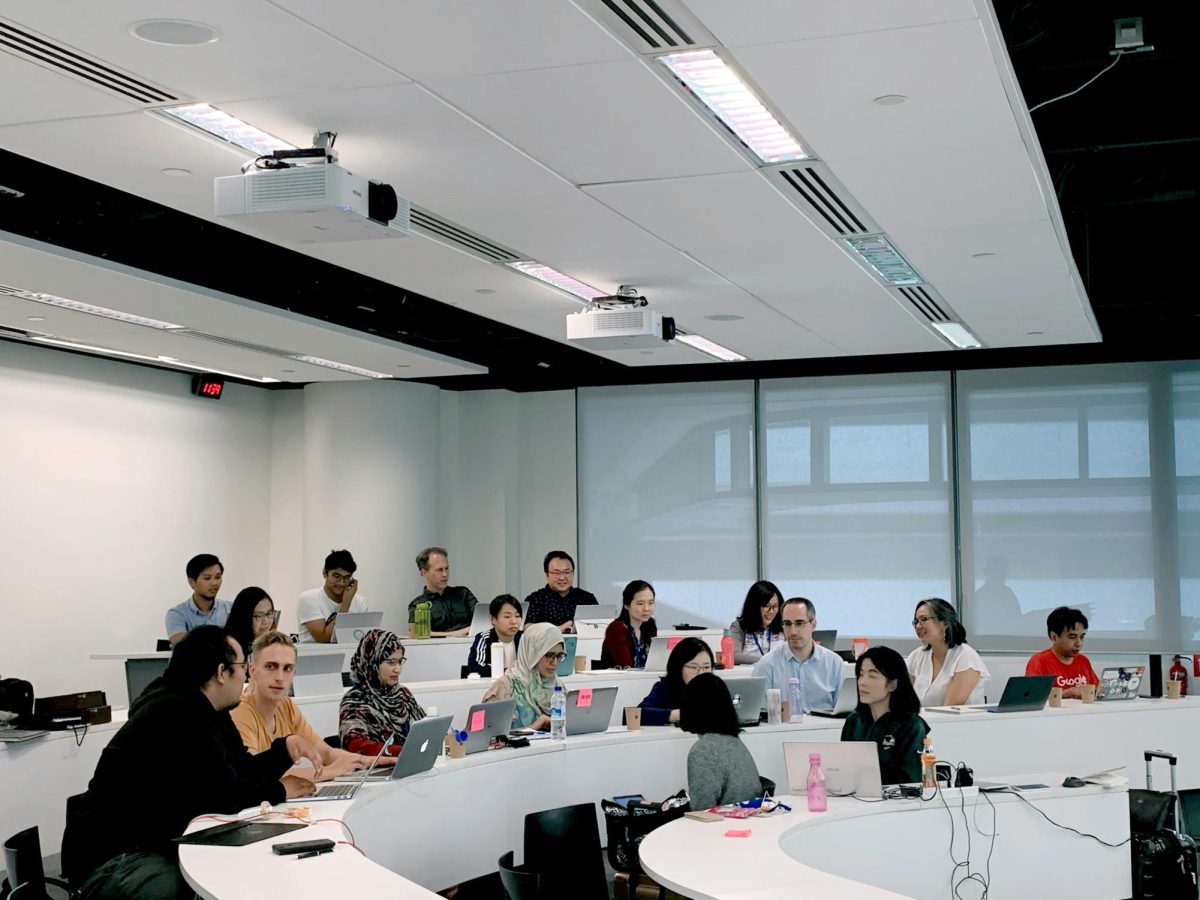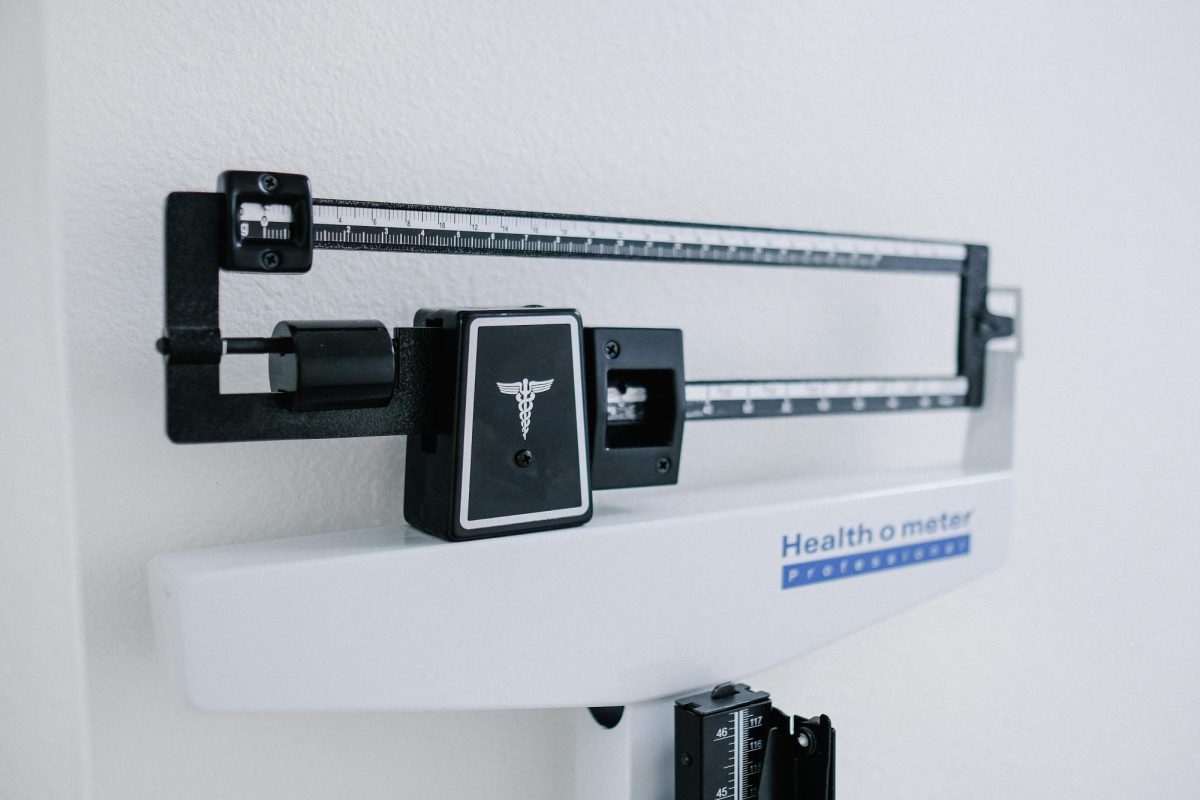By Karen Gavis/se news editor
“Early detection means better outcomes,” he said. “That is the key.”
Gonzales said women should get a yearly mammogram beginning at age 40 and should continue doing so as long as they are in good health. Women who are high-risk may want to get one sooner, he said.
Gonzalez came to SE with an arsenal of props to demonstrate his points. These included an oversized pill, porcelain plates, tennis shoes and an Ebenezer Scrooge-type nightcap, among others.
Gonzalez said 1 in 8 women develop breast cancer, a disease that has a risk to the age of 82. Risk is something people want to avoid, he said, and reducing body fat reduces risk by 30 percent.
“If you are already overweight, the best thing you can do is try to take some of that off,” he said.
Gonzalez held out a pair of tennis shoes and said any amount of activity is better than sitting on the couch. He then held up a dinner plate and a salad plate, so the crowd could visualize the size difference between the two.
“Keep in mind portion control is a big deal,” he said.
Gonzalez donned an old school nightcap while saying college students do not get enough sleep. Getting the right amount of sleep reduces risk as well, he said, citing a study that found nurses working the night shift had a greater risk of breast cancer than those that did not.
“If you don’t get an A on the next test, I guarantee you won’t die,” he said. “Somewhere, you’ve got to get some sleep. Make sure you do it.”
Gonzalez said hormone replacement therapy increases the risk of breast cancer, and hot flash remedies are similar to HRT. Smokers can reduce their chances of dying of breast cancer by 90 percent if they quit by age 30, he said.
“You’ve got a lot of control of your personal health,” he said. “The better you treat your body, the better it treats you.”
There is some good news, he said. The risk factor of inherited breast cancer is thought to be 5-10 percent.
SE health services coordinator Liz Lowry said almost everyone knows someone affected by breast cancer.
“For sure, prevention is our biggest goal,” she said.
SE staff member Delaina Milligan said Gonzalez was funny. She thought the lecture was interesting and she learned some things. Milligan did know that HRT increased the risk of breast cancer.
“I’m just wondering if my mom knows that,” she said.
Milligan said a distant relative was recently diagnosed with breast cancer. The relative, 39, underwent a mastectomy.
“That is why I’m here,” she said.
Milligan, also 39, plans to have a mammogram this year.

























